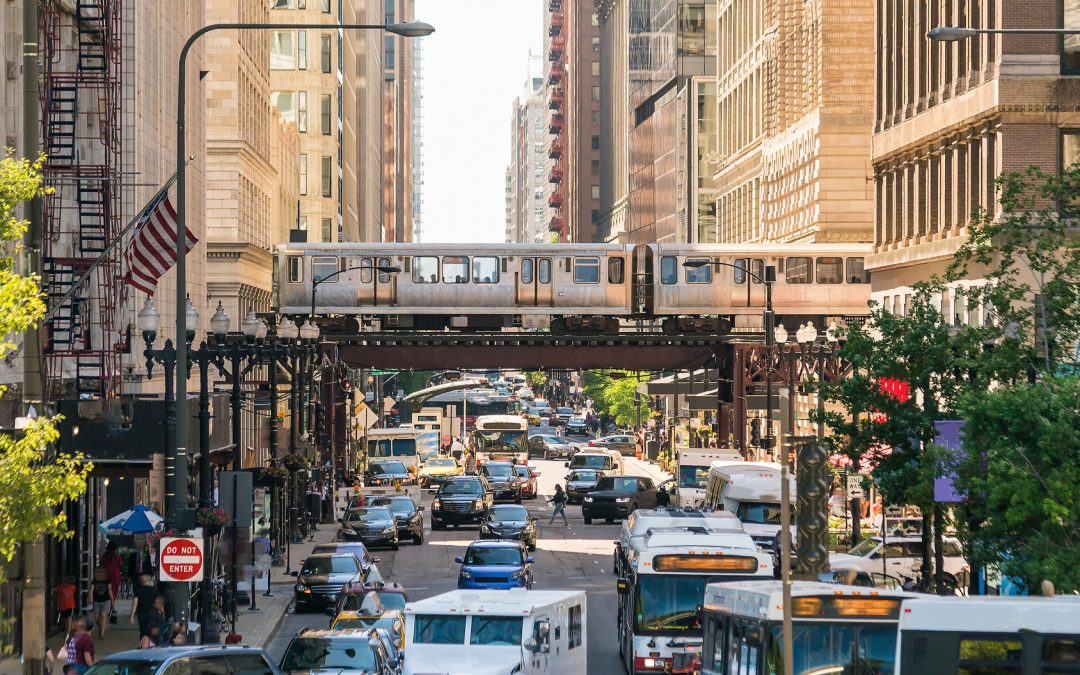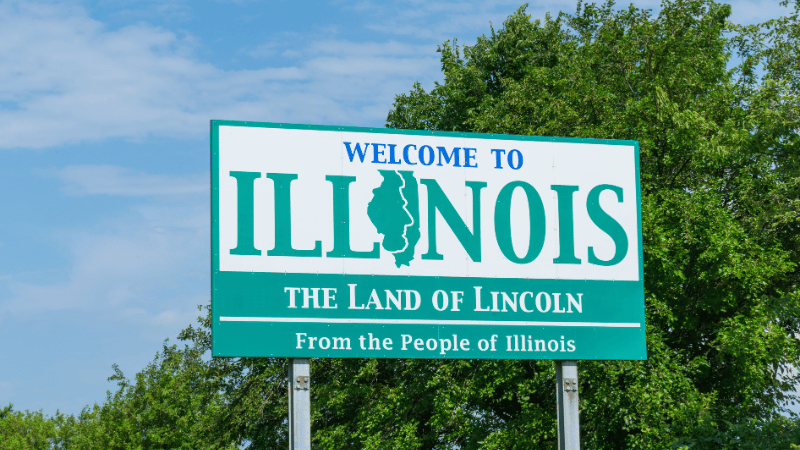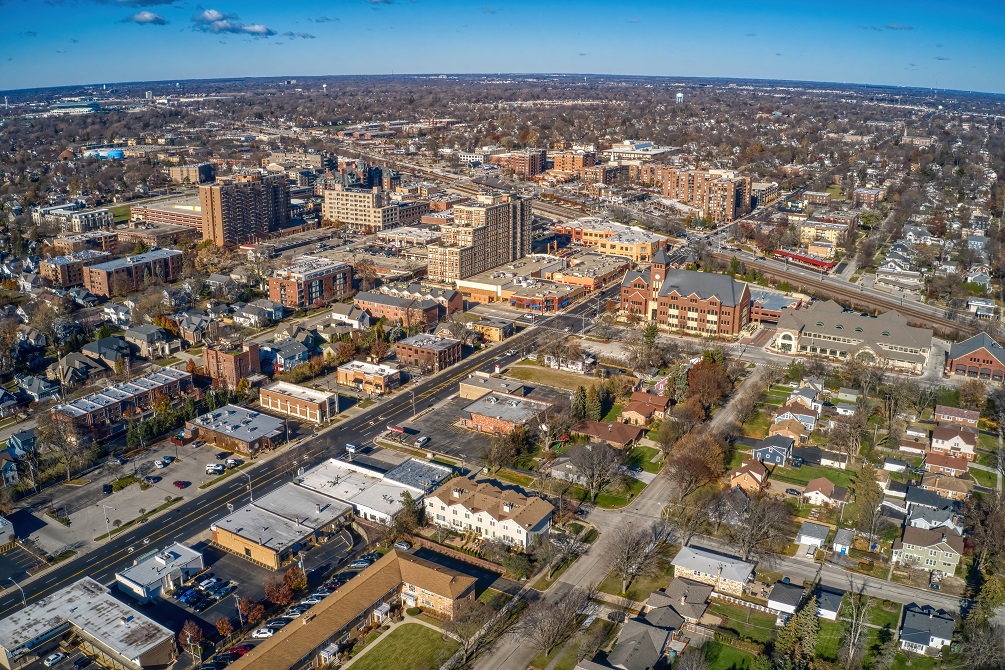Last Updated on September 5, 2023 by Kari-Ann Ryan
Moving to a new home can be exciting, especially if you move somewhere that is very different from where you currently live. It can also be stressful moving to a new environment that you are not used to. One of the biggest changes you can make in your living situation is moving from a small town or suburb into a big city like Chicago.
Moving from Suburbs and Small Towns
Many people who have never lived in a big city but have had the desire eventually succumb to the allure of city life and find themselves living in a much more populated and concentrated area than they experienced in the suburbs.
While there are plenty of people that would love to move to the city, big city life is not for everyone. It is very different than life in the suburbs or a small town and moves at a much faster pace. Like with any location, living in a major city has its advantages and disadvantages that you must take into account before ultimately deciding to ditch the suburbs for the big city lights.
The following are the main pros and cons of living in a city that you should consider before moving, even if you have always wanted to live in a major city.
Pros of Living in the City
Even though city living has its inconveniences, it makes up for these inconveniences with all that it has to offer. Big cities are major cultural centers that have vibrant art and music scenes, a wider variety of food, more places of interest such as museums, events like ball games and concerts, and a diverse population with a shared experience of city living. The following are the main advantages of city life:
1. Meeting New People
You will meet new people anywhere you move, but the experience is different in a city because major cities draw all kinds of people to them from all over the world. There are also more people in a city which means you will be encountering new faces every day. Meeting and talking to new people who have had very different life experiences than yours can be refreshing and give you a new perspective.
2. Activities
If you have lived in the same town for 10 years or more, chances are that you know the town very well and have done about everything there is to do. If you spend 10 years living in a major city, you likely won’t come close to experiencing everything the city has to offer. There is always something to do in a major city to keep people of all different interests from getting bored. Most cities have a lively nightlife, different types of food to try, shows of all types, museums, landmarks, parks, festivals, sports games, and much more. If you are a visual or performance artist or a musician, there are plenty of opportunities in big cities to become a part of the scene.
3. Public Transportation
The public transportation system in major cities is a good alternative to driving yourself and dealing with the traffic and parking situation. Cities have trains or subways, buses, and plenty of taxis and ride sharing drivers so you can get where you need to go. Many public transportation options such as the bus and train are very affordable and free you of the hassle of driving. If you live in Chicago, for example, the average cost of public transpiration per month is around $82; in New York, the average cost per month is around $130 according to Expatistan.com.
It is possible to live without a car in most major cities. According to AAA, the average is $10,728 or $894 per month for owning and operating a new vehicle in 2022. It is certainly a hefty cost.
4. Big Events
The biggest events such as sporting events, concerts, festivals, and art openings happen in major cities. You can catch a concert or a baseball game without the long drives to and from the suburbs.
5. Shared Experience
One thing that can be very comforting in a big city with millions of people of different backgrounds is that everyone is sharing the same experience of living in the city. Big cities are more welcoming than many people believe and if you go to the same places and do the same activities, you will quickly meet new people who have similar interests and likely came to live in the city for the same reasons as you.
6. Free Activities
While many activities are typically more expensive due to the higher overhead costs, there’s also many free things to do when they’re planned well. Everything including going to the park, window shopping, visiting museums during their free admission days, and enjoying the sites downtown are all free and you can spend all day staying busy. While you won’t be spending your money, you’ll definitely be spending your time at these gorgeous sites, making the most out of your city-living experience.
7. Higher Salaries
Despite the high costs of living in the city, employers are usually willing to pay more. This is why many suburbanites commute to the city to get the higher pay and still enjoy the economical housing costs. Specifically large corporations like Google, Amazon and McDonald’s who moved many of their corporate offices downtown are offering higher salaries with remote positions. So some employees many not have to face the commute everyday.
8. More Job Opportunities
With companies ruling the city skyscrapers, it’s pretty hard not to find a job, although it may be tough to find one that pays your elevated rent cost. But a city full of companies is a city full of career opportunities. Chances are you’ll find one you love. If you want to get into skilled work in technology, arts, entertainment, or business, these type of highly skilled jobs tend to concentrate in big cities.
Statistics also show that people in larger cities also find better employment opportunities than those in the suburbs or smaller towns.
9. Lots of Dining Options
There’s never any shortage of authentic restaurants in the cities. From fast food chains to Mom and Pop restaurants, you’re likely to find a cuisine of your liking within a mile or two.
Although dining options in the city are also usually higher due to their higher rent, many restaurants will have lunch and dinner specials as well as the availability of food stands. So you’ll have to do some research to get in on the good deals.
10. Close Proximity to Airports
If you have to travel a lot for work, you’ll definitely have an easier to commute to the airport when living in the city compared to the small towns. Instead of paying an Uber or Lyft for $20+, public transportation has connecting routes to international airports everywhere for just a few bucks.
Living next to an international airport will also have more non-stop flights, so you can expect to arrive at your final destination must faster.
11. Easy Healthcare Access
Healthcare access is important for many individuals when considering where to move. Living in the city also provides you with easier and better access to mental and physical health care options. You are more likely to find specialized care when needed. If you live in a big city, the medical technology is likely better and more advanced compared to rural areas.
According to Pew Research Center, the average distance to the nearest hospital is around 5 miles for urban and suburban residents, while rural residents live an average of over 10 miles away from the nearest hospital, doubling the distance.
Cons of Living in a City
People who routinely visit or work in a big city know that they can be a hassle. Major cities have more people, traffic, and neighborhoods that can make navigating through the city more difficult. The following are the main disadvantages of big city life:
1. High Cost of Living
The higher cost of living is the first disadvantage that people typically think of when considering moving to a city. Major cities always have a higher cost of living than the surrounding suburbs, and cities like San Francisco and New York routinely have the highest costs of living in the U.S. Normal living expenses such as rent and utilities tend to be higher in big cities and you may have additional living expenses you wouldn’t have in the suburbs such as parking permits and laundry. Food, drinks, tobacco products, and gasoline are also more expensive in major cities.
2. Noise
In general, the noise level in major cities is higher than in the suburbs. Cities have more people and more traffic that contribute to the noise, as well as trains and nearby airports with loud planes flying in and out. Special events such as concerts and ball games can also make a neighborhood louder and more congested. Downtown areas in some major cities like New York are loud and busy almost 24 hours a day. However, it is possible to find city neighborhoods that are almost as quiet as the suburbs. Chicago has plenty of neighborhoods throughout the city that are relatively quiet.
3. Lack of Space
Moving from the suburbs to the city almost always involves downsizing your living space. Most people in major cities live in apartments and in some cities, the apartments can be very small. It is also rare to have an outside space like a yard or patio. There are homes in major cities, some with decent sized yards, but they are much more expensive than in the suburbs. If you want to move to the city, you must accept that you will be living in an apartment building with neighbors on the other side of your walls.
4. Lack of Parking
The parking situation in a major city is a huge hassle compared to the suburbs. In the suburbs, people can park in their driveways or on their residential streets and most businesses have parking lots for their customers to use. In big cities, parking is not a guarantee. Some residential streets are permit parking only which means you need to buy a permit, and streets with free parking fill up fast. It is rare for an apartment to have a designated parking space, but there are apartments that do. It is also rare for businesses to have their own parking lots which means that you will most likely have to pay to park somewhere on the street, maybe even a couple blocks away from your destination.
5. Higher Auto Insurance Premiums
If you live in the city and absolutely must have a car, congested city living will lead to a higher risk of accidents. This will then yield a higher insurance rate when living in the city compared to the suburbs.
According to ValuePenguin, drivers report paying almost $1,000 higher on their insurance premiums when living in a big city than their state’s national average.
6. Higher Crime Rates
Some cities will have higher crime rates than other, but you can definitely count on these urban areas to be more dangerous than smaller towns. More people = more crime.
Higher crime rates also raise auto insurance rates, due to car theft and damage, burglaries and vandalism, according to QuoteWizard.
7. Pollution
Cities often grapple with various forms of pollution that impact residents’ daily lives. The most prominent among these is air pollution, stemming from congested streets, heavy traffic, and industrial activities. Cities produce around 78% of carbon emissions and substantial airborne pollutants that affect over 50% of world’s populations.
Breathing polluted air can lead to respiratory issues and long-term health problems. If you have any respiratory issues, living in the city may not be the best idea.
Move with Professional Movers
Living in a major city definitely has its drawbacks, but to some people, the advantages far outweigh the disadvantages of living in a city. If you are planning to move to Chicago or another major city, it is beneficial to hire professional movers to help out.
Mid-West Moving & Storage provides residential moving services and can help you make your move from the suburbs to an apartment or condo in the city. We are trusted Chicago based movers who have been providing professional moving services since 1983.
Contact Us
Give us a call at 847.593.7201 or fill out a contact form on our website to get a free quote for your move to the city.













